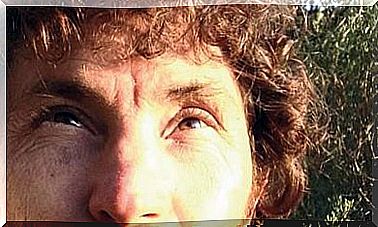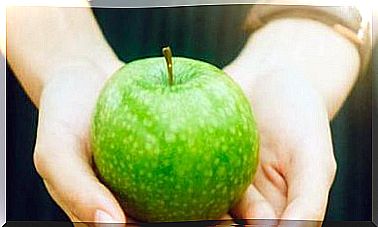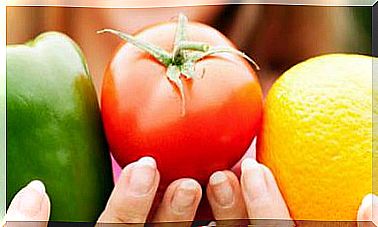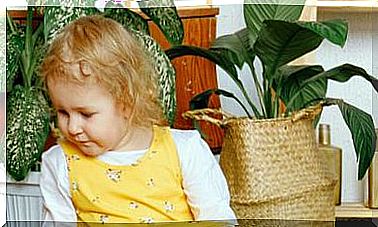Compassion: Here Are Its Scientific Benefits
Compassion, studies suggest, serves as a vaccine against empathic distress, encouraging more activity in the brain’s centers of affect, which increases resilience rather than burnout.

Do you need to calm down? Try the following: take a deep breath, filling your lungs; hold your breath for two to three seconds, then let the air out slowly. Take five to ten breaths this way. If you need help concentrating fully on your breath, you can help yourself by mentally noting “in” as you breathe in, “out” as you breathe out. Or you can imagine that when you breathe, the tension gradually disappears from the body.
This deep breathing exercise can calm and relax us at the beginning of the day or at any time that we have that need. This is suggested by Thupten Jinpa in describing one of the many methods he has adapted from traditional Tibetan sources for use in a compassion training program. Like many of the methods now studied in research on cultivating compassion, it has its distant origins in spiritual traditions that have been stripped of their belief system and simplified for more general use.
Compassion: several authors tell us about this ability
The Dalai Lama, Jinpa directs the Library of Tibetan Classics, which translates texts from the vast heritage of that culture. From this rich background, Jinpa developed Compassion Cultivation Training (CCT), a variation on classical Tibetan methods, which he made accessible to everyone. At the behest of the Dalai Lama, that program became the centerpiece of testing at Stanford’s Center for Compassion and Altruism Research and Education.
An evaluation of the CCT by Stanford researchers found that it decreased people’s worries and increased their happiness. When the program was tested in patients with chronic pain, their sensitivity to pain decreased after nine weeks, while their sense of well-being improved, and their partners described them as less angry.
Although the methods for cultivating compassion being tested are modern adaptations of ancient practices, the research methodology itself comes from science. A network of scientific centers has been created that have come together in the study of compassion and how to foster it.
Benefits of compassion that you did not know
In studies carried out at the University of North Carolina, in which an attitude of benevolence is practiced, it was observed that not only did depression decrease and stimulate positive attitudes, but it also increased people’s sense of satisfaction with their lives, reinforcing your connections with family and friends.
At Emory University, a similar adaptation was used with students suffering from depression. Initial results suggested that fostering a compassionate attitude not only repelled depression to some degree, but also reduced the body’s responses to stress.
Previous results in cultivating a compassionate attitude even suggest biological benefits, such as lowering inflammation and lowering stress hormone levels. Research by Richie Davidson has shown that these modern adaptations of ancient methods cause beneficial changes in the brain, both in structure and function.
The Dalai Lama and neuroscience recommend it
The Dalai Lama advocates using the highest scientific standards when conducting such assessments. After recounting some of these discoveries to the audience, for example, the Dalai Lama proposed: “Do the tests again, after one year. And also ask the families – the important people in your lives – what changes they have observed.
At the Max Planck Institute in Germany, neuroscientist Tania Singer teamed up with Matthieu Ricard, an ordained French biologist monk, to evaluate various methods for cultivating compassion. They found a difference between accumulating empathy (when you feel how the other person feels) and compassion (when you want to alleviate their suffering); each one of them increases the activity of different neuronal systems.
When we simply empathize, tune in to someone’s suffering – for example, by visualizing vivid images of burn victims or others in dire hardship – the brain turns on the circuits to feel pain and anguish. That kind of empathic resonance can flood us with emotional imbalance, “empathic distress,” as science calls it. Professions like nursing can often be plagued by such chronic anxiety, which can turn into emotional exhaustion, a precursor to burnout.
But it doesn’t just happen in nursing. When I last spoke to Eve Ekman, she mentioned that just that morning she had just been with a group of neurosurgeons presenting the program “Cultivating Emotional Balance in Your Hospital.” “They wanted to know how to respond to their patients’ fears, showing empathy in a way that would no longer distress the patient,” Eve told me. They told me that in the operating room they had less difficulties, because there you don’t have to talk to your patients.
In search of a cure for emotional fatigue
The surgeons ‘goal was to maintain their emotional balance, to remain open to their patients’ emotions, but not overwhelm them. Eve added that many healthcare workers suffer from empathic distress, which leads to emotional exhaustion.
He told me that, in an elevator at the hospital where he works, he heard someone ask a co-worker: “How are you?” And the answer was: “I still have nine years to go.” These people are counting the days and years until retirement and are emotionally drained.
When Alan Wallace, a co-developer at CEB, first taught it to male and female teachers, he heard just the same complaint from one of them. But at the end of the course, the teacher had changed her position; According to Eve, she said, “Now I think I can be of much use; my work makes sense. Instead of counting the days, now I look forward to each day that I have left with those children, so that I can help them.
The CEB program helps people cultivate benevolence, compassion, equanimity, and empathic bliss, rejoicing in each other’s happiness. Instilling the same capacities for sincerity and generosity was what also animated the program designed by Matthieu Ricard, evaluated by the Tania Singer working group.
The brain in the face of displays of empathy
Singer’s group found that after people practiced feeling warm and caring for others, they could look at those photos of suffering without looking away defensively, remaining open to the distress of others. At the same time, the brain circuits related to positive feelings were activated, indicating their attitude of compassion and good wishes for the victim. Compassion, the results suggest, serves as a vaccine against empathic distress, encouraging more activity in the brain’s centers of affect, which increases resilience rather than burnout.
“Some people have the impression that compassion is only good for the other person, but that you do not necessarily benefit yourself, or even that feeling too much compassion ends up weakening you,” says the Dalai Lama. He told me of an encounter with an Indian woman who worked in the medical field, but who had become exhausted due to the demands and emotional turbulence of her patients, resulting in her abandonment of that professional field. But, the Dalai Lama quickly added, studies like Singer’s show that cultivating an attitude of genuine compassion can be part of that vaccination against burnout.
When the Dalai Lama was once asked why he wanted people to open up and empathize with the world’s pain, he replied that we all have a moral responsibility to face that pain and to try to alleviate it. If we just get depressed and give up, he said, “the pain will have won.”
Buddhism and science
Scientific findings on compassion provide the Dalai Lama with the kind of “ammunition” he needs. “If he said that you have to be compassionate,” says the Dalai Lama, “then people would think that, of course, he says it because he is the Dalai Lama, he is Buddhist. But if the scientific evidence shows that it has benefits, then it is more convincing. People pay more attention.
Today, as he says, scientific claims appeal to more people than those of any religion. Although the Dalai Lama travels the world, spreading his vision for a better future, he often supports what he says with scientific discoveries like these about the development of compassion.
The message of compassion is for all of us, not just religious ones. But I was struck by what the Dalai Lama means by “compassion,” and how it is put into practice.









